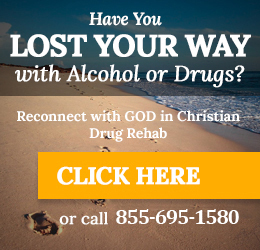Many people who are actively abusing drugs or alcohol may be found to also have an underlying psychiatric illness. In fact, the prevalence of mental illness is higher among addicts than the general population. These individuals have a “dual diagnosis” and must be handled differently than other patients. This is where dual diagnosis treatment programs come into play.
Although patients with mild or moderate mental illness can receive addiction treatment in most intensive outpatient drug rehabs, they will need additional psychiatric treatment and medication for the underlying disorder, specifically at a dual diagnosis drug rehab facility.
Dual Diagnosis Treatment Programs
In order to facilitate a continuity of care, many drug rehabs will often have an active relationship with other mental health workers and will coordinate care and share client treatment progress across groups. A case manager or multidisciplinary team comprised of clinicians from both sides is the most effective way to manage the care of such patients.
In facilities where an integrated dual diagnosis treatment program is offered for both addiction and mental illness, the facility will run special group sessions for patients with dual diagnosis. Participation in such groups helps manage expectations and assure patients that, while they may have a harder road ahead than others, their dual diagnosis does not mean that recovery will remain elusive.
 In dual diagnosis programs, patients will learn how their case is expected to progress and how to identify potential problems before they get out of hand. These groups are also ideal for teaching patients how important it is to take and manage their medicine and the likely outcome if they mix said medication with other drugs or alcohol.
In dual diagnosis programs, patients will learn how their case is expected to progress and how to identify potential problems before they get out of hand. These groups are also ideal for teaching patients how important it is to take and manage their medicine and the likely outcome if they mix said medication with other drugs or alcohol.
Teaching patients how certain medications successfully manage their underlying illnesses is helpful in resolving misunderstandings about the use of medication in recovery, increasing the chance of medical compliance and encouraging more active participation.
How is Dual Diagnosis Determined?
How do therapists determine whether a client has an underlying mental disorder or is simply being affected by the drug or alcohol? All drug rehab patients will likely exhibit behavioral changes once they stop using drugs or drinking alcohol. When psychiatric symptoms are closely related to substance use (i.e. not dual diagnosis), the symptoms should eventually resolve after a period of sobriety.
For example, clients who exhibit signs of depression or anxiety while actively abusing substances may experience relief once the abuse stops. For these patients, continuation of medicine to treat depression or anxiety is rarely necessary.
However, if a patient’s symptoms remain unchanged or get worse, they will be labeled as having dual disorders and will require additional treatment via a dual diagnosis treatment program for the underlying psychiatric condition.
Once a patient gets sober, the mood disorder needs to improve in order to avoid the patient relapsing or dropping out of the program altogether. Therapists walk a fine line between giving the body enough time to rid itself of mood-altering substances so that a baseline level can be evaluated, and waiting so long to start psychiatric intervention that the patient is further harmed.
Addiction professionals at a dual diagnosis drug rehab differ as to how long they will wait before prescribing mediations for mood disorder; the period is usually anywhere from two to eight weeks after drug or alcohol use has ceased. In the meantime, however, therapists will often try to ascertain from the patient, his records or his family members, whether he experienced the symptoms prior to the addition.
If a therapist believes that the mood disorder existed in the absence of substance abuse, he or she may elect to begin pharmacological intervention much sooner than usual.
Common Mental Illnesses Treated in Dual Diagnosis Programs
The most common co-occurring disorders are those affecting mood or levels of anxiety and typically respond to psychotropic medications, psychotherapy or other related treatments. Clients may be prescribed antidepressants; however, many practitioners avoid the use of benzodiazepines (common anti-anxiety meds) do to their highly-addictive nature, even in non-abusing populations.
Occasionally, a patient admitted for drug rehab will also suffer from dissociative PTSD (post-traumatic stress disorder), OCD (obsessive-compulsive disorder), or ADHD (attention-deficit hyperactivity disorder). Studies suggest that these patients may develop substance abuse issues while attempting to self-mediate to control their symptoms.
People plagued with dissociative disorders may face a recurrence of traumatic memories; this often leads to psychotic or suicidal thoughts.
Because addicts also need to avoid the use of benzodiazepines, options for management of the co-occurring disorders are limited. Patients exhibiting these symptoms have trouble relaxing during treatment and have a high rate of relapse. As such, it can be difficult to integrate these patients into general drug rehab, especially since they are usually unpredictable and disruptive. In the end, these patients respond best to one-on-one therapy at a dual diagnosis rehab.
Patients with chronic psychotic disorders require more care than the average dual diagnosis patient. Although many will benefit most from an inpatient drug rehab program, it is possible to treat these patients at specialized intensive outpatient facilities that focus on cognitive deficits, physical or social issues and medication management.
Patients with co-occurring psychoses are some of the most difficult patients to treat, largely due to their limited social and interpersonal skills. These patients tend to have treatment obligations at other facilities and, thus, require intensive case management assistance.
Because lack of structure is often a cause for relapse, studies have shown that intensive outpatient treatment is most effective when conducted over the course of six hours per day.
The best intensive outpatient drug rehabs for patients with a dual diagnosis acknowledge that there should be no time limit to the amount of treatment any one patient is to receive. Instead, program length must be based on each patient’s individual needs and progress.
In most situations, these patients will require additional treatment modalities, frequent communication with other mental health professionals, special group counseling sessions, and one-on-one medication tutorials.
If you or a loved one is struggling with what you believe is dual diagnosis, contact us today and break free from the cycle of addiction and pain!



